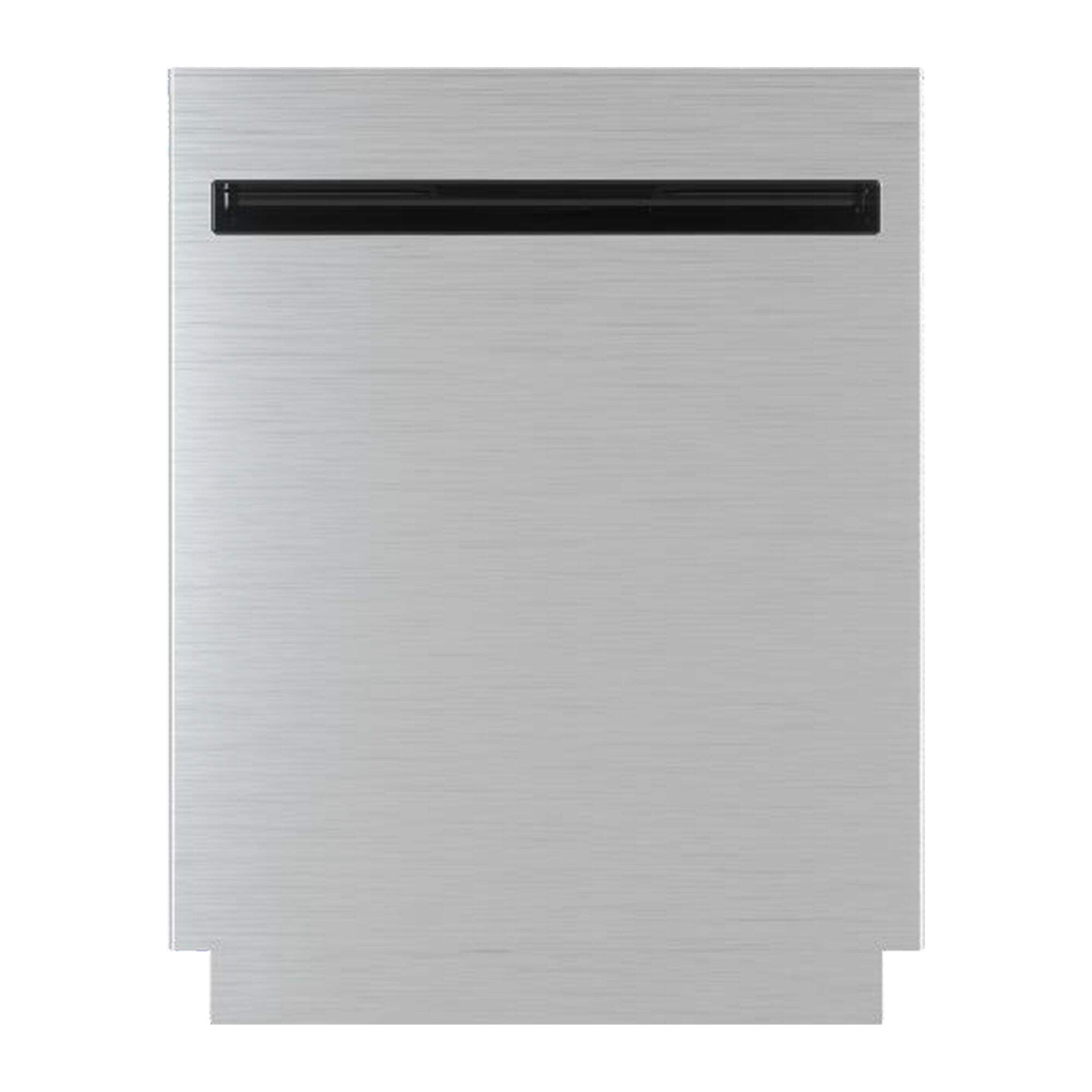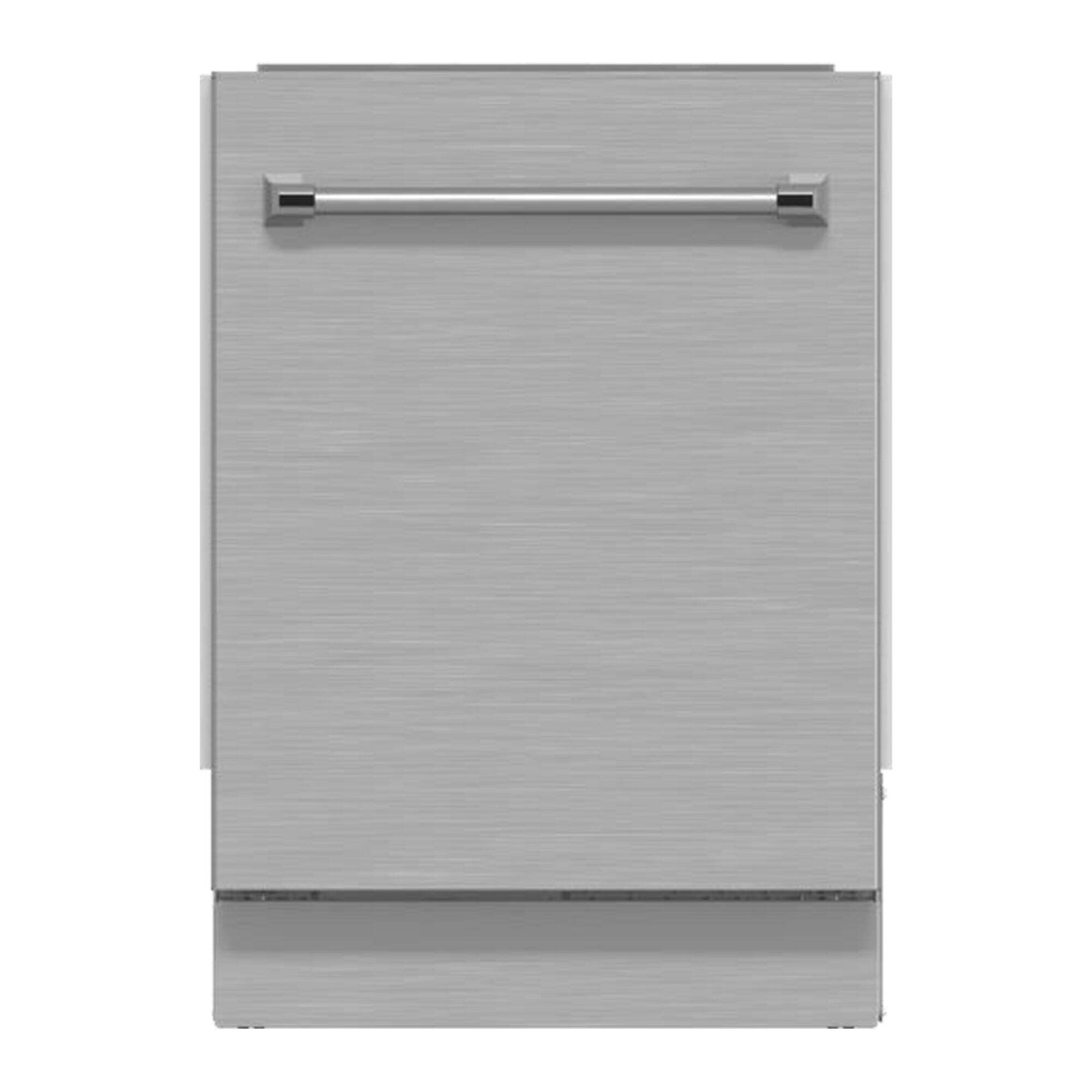Water Conservation Techniques in Commercial Dishwashers
Core Technologies for Water-Efficient Dishwashing
Smart Wash Cycles for Adaptive Water Use
Smart wash cycles represent a significant advancement in water-efficient technologies for dishwashers. These systems automatically adjust the water dispensed based on the load size and the level of soiling, ensuring that each wash cycle operates at maximum efficiency. Employing sophisticated sensors and algorithms, smart wash cycles optimize water usage and can be up to 50% more efficient than traditional cycles. This innovation not only conserves water but also contributes to sustainability efforts in commercial settings. Remarkably, studies have demonstrated that dishwashers equipped with smart technology can save up to 3,870 gallons of water per year per unit, making them a compelling choice for eco-conscious consumers and businesses alike.
Heat Recovery Systems & Energy Reuse
Heat recovery systems play a crucial role in enhancing energy efficiency in modern dishwashers. These systems capture the excess heat generated during the wash cycle to preheat incoming water, significantly reducing energy consumption. By incorporating heat recovery systems, establishments can decrease their overall energy expenditure by up to 30%, highlighting the profound impact of this technology on reducing operational costs. The adoption of heat recovery systems in contemporary machines not only promotes eco-friendly practices but also aligns with various sustainability certifications, further encouraging businesses to invest in green technologies.
High-Pressure Spray Technology Optimization
The use of high-pressure spray technology is a noteworthy innovation that optimizes cleaning while reducing water usage. This technology enhances the cleaning process by using less water yet delivering superior results in a shorter time. High-pressure spray systems are designed with variable pressure settings to tailor water use according to specific washing needs, providing flexibility and efficiency. Notably, this technology can reduce water consumption by about 20% compared to conventional methods, emphasizing its effectiveness in supporting water conservation goals. Such advancements make high-pressure spray technology a valuable asset in commercial dishwashing, enabling establishments to achieve excellent cleaning performance sustainably.
Operational Techniques to Minimize Water Waste
Optimizing Load Capacity for Efficiency
Optimizing the load capacity of dishwashers is crucial for achieving operational efficiency and minimizing water usage. By understanding and adhering to optimal load capacity, we ensure that water is used efficiently, providing the best cleaning results per dish washed. This practice involves training staff on proper loading techniques to avoid the common pitfalls of underloaded cycles, which lead to water wastage. According to studies, effective load optimization can result in a 25% reduction in water usage. Thus, it is essential to implement these practices in daily operations to make significant savings and contribute to environmental sustainability.
Routine Maintenance for Peak Performance
Routine maintenance is vital in ensuring that dishwashers operate at peak performance, preventing water wastage due to malfunctioning parts. Establishing a regular maintenance schedule can improve operational efficiency by up to 15%, reducing both water wastage and the need for unnecessary repairs. Regular inspection of the water filtration system is particularly crucial, as it maintains optimal water efficiency. By taking these steps, we can ensure that dishwashers run smoothly, maximizing their potential and conserving precious resources.
Drain Water Tempering Best Practices
Implementing drain water tempering practices is another effective operational technique that boosts overall water efficiency. This method involves regulating the temperature of drain water to prevent thermal shock and reclaim heat for subsequent cycles. By doing so, we not only improve water conservation but also achieve energy savings of up to 10%. Adopting such best practices in drain water management enhances the eco-friendliness of our operations, providing tangible benefits in water and energy use.
Hyxion's Water-Saving Commercial Dishwashers
DG1-A6301-AM: 3.2 Gallons/Cycle Efficiency
The Hyxion DG1-A6301-AM dishwasher is a standout model for commercial operations, using only 3.2 gallons per cycle. This remarkable water efficiency reduces utility costs and minimizes environmental impact, benefiting businesses that are keen on sustainability. With this model, businesses can save approximately 5,000 gallons of water annually.
DG1-A6302-AM: Ultra-Quiet 43dB Operation
The DG1-A6302-AM model excels in noise-sensitive environments, operating efficiently at a mere 43dB. This ultra-quiet operation is ideal for establishments focused on customer experience, such as hotels and restaurants. Despite its quiet nature, it retains optimal cleaning capabilities, ensuring minimal water waste and a soothing atmosphere.
DG1-A(D)6101B-EU: Energy Class C Compliance
The DG1-A(D)6101B-EU dishwasher from Hyxion demonstrates a commitment to energy efficiency and water conservation, complying with Energy Class C standards. This compliance not only reduces operational costs but also enhances the sustainability credentials of businesses. Additionally, adherence to energy standards may offer tax incentives, further benefiting business implementations.
DG1-A(D)6103-EU: 24-Hour Delay Start Feature
Boasting a 24-hour delay start feature, the DG1-A(D)6103-EU allows businesses to align dishwashing with off-peak energy hours. This strategy not only conserves resources but also fits seamlessly into busy business schedules, ensuring clean dishes during peak times. Research indicates that such scheduling enhances energy and water efficiency by up to 20%.
DG1-A(D)6203-EU: Intensive 1/2 Wash Program
The DG1-A(D)6203-EU dishwasher's Intensive 1/2 wash program effectively cleans heavily soiled dishes while optimizing water usage. In fast-paced kitchens, this function provides operational flexibility by allowing users to choose between longer washes for stubborn stains or quicker cycles. Implementing half-load washes can result in up to 50% water savings during low-demand periods.
Benefits of Modern Water Conservation Systems
Utility Cost Reduction Strategies
Modern water conservation systems play a crucial role in reducing utility costs, which directly benefits the financial bottom line for businesses. By integrating these systems, facilities can achieve upto 30% savings on their monthly water bills, an impact that is both economically and environmentally significant. Continuous monitoring of water usage can uncover additional savings opportunities, reinforcing the necessity of efficient systems. Such diligence ensures that water consumption is optimal while serving to highlight areas where further savings could be achieved, thus amplifying the financial benefits received from initially implementing these systems.
Sustainability Certification Advantages
Utilizing advanced water conservation technologies enables businesses to qualify for sustainability certifications, greatly enhancing their brand image. These certifications serve as a testament to a brand's commitment to environmentally friendly practices and provide a distinct competitive edge in the marketplace by attracting environmentally conscious consumers. Studies show that brands with sustainability certifications experience an average increase in sales by 10%. This growth exemplifies the substantial market advantage that businesses can leverage through sustainability, driving both customer loyalty and increased trust in their brand.
Long-Term Equipment Longevity
Investing in water-efficient systems provides a dual benefit; it reduces waste and significantly prolongs the lifespan of equipment through proper maintenance. High-quality systems tend to require fewer repairs and replacements, which translates into reduced long-term operational costs for businesses. Moreover, research suggests that appliances maintained efficiently can last up to 15 years longer than standard models. This extended longevity underscores the importance of maintaining water-efficient systems, showcasing the intersection between sustainability and economic prudence.

 EN
EN
 AR
AR
 BG
BG
 HR
HR
 CS
CS
 DA
DA
 NL
NL
 FI
FI
 FR
FR
 DE
DE
 EL
EL
 IT
IT
 JA
JA
 KO
KO
 NO
NO
 PL
PL
 PT
PT
 RO
RO
 RU
RU
 ES
ES
 SV
SV
 TL
TL
 IW
IW
 ID
ID
 LV
LV
 LT
LT
 SR
SR
 SL
SL
 SQ
SQ
 HU
HU
 MT
MT
 TH
TH
 TR
TR
 FA
FA
 MS
MS
 GA
GA
 IS
IS
 HY
HY
 AZ
AZ
 KA
KA





